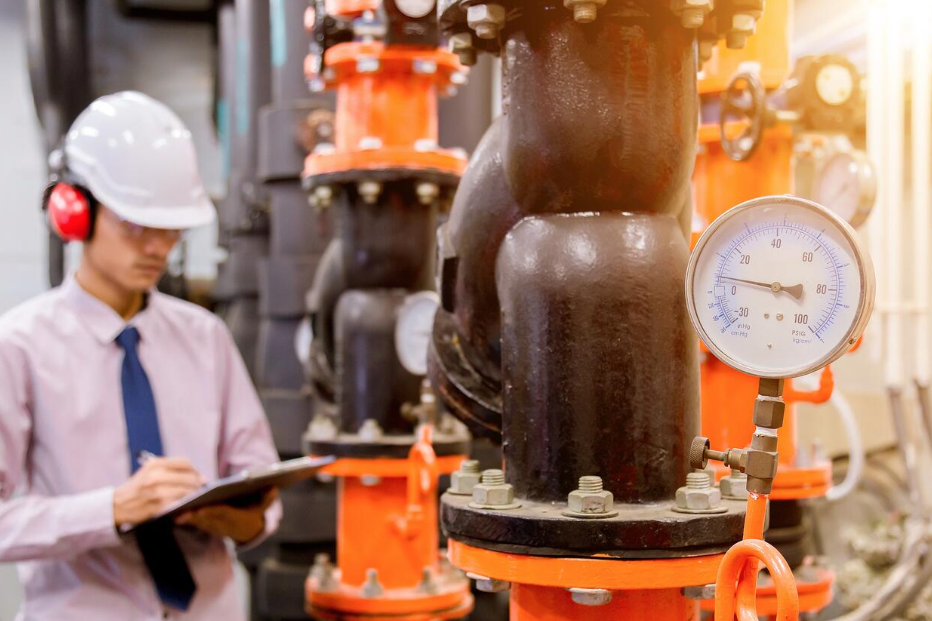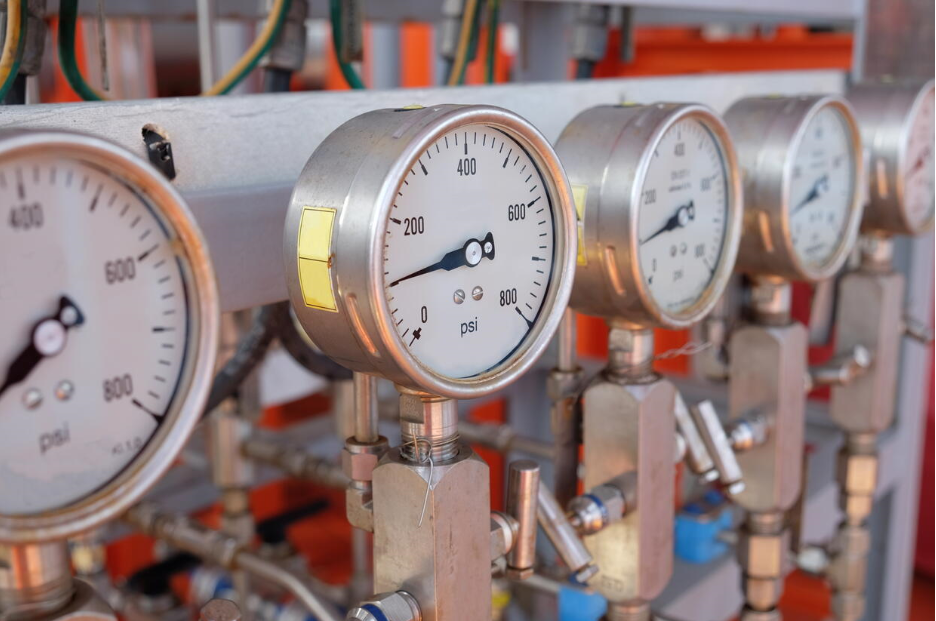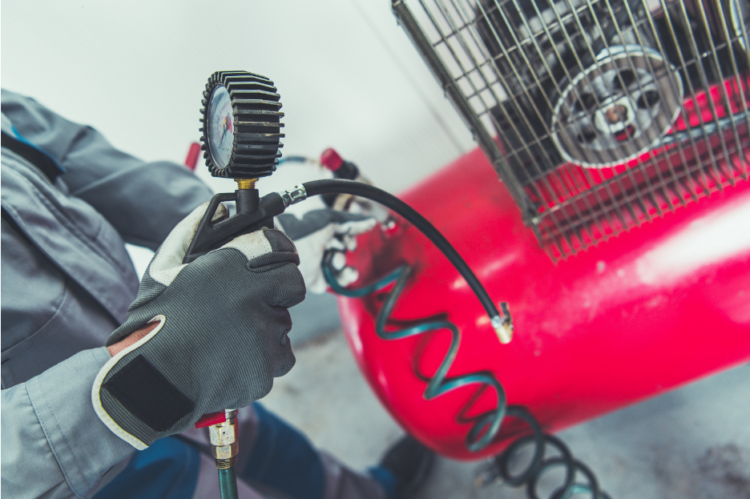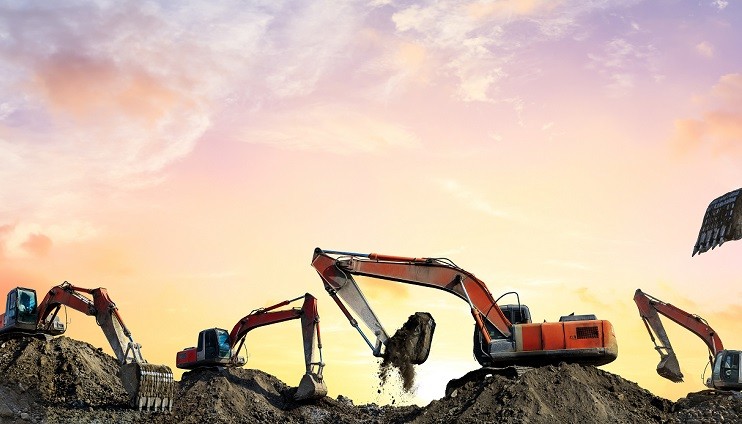Air compressors are versatile mechanical devices that are essential to a wide range of industries and applications. They are machines that convert energy, usually from an electric motor or gasoline engine, into potential energy stored within compressed air. When released, this high-pressure air can be utilized for various purposes, from inflating tires to operating heavy machinery. Air compressors are a crucial component of modern life, powering the tools and equipment that allow people to build and maintain modern systems.
There are several types of compressors, each serving distinct purposes. Selecting the appropriate one is crucial, as it can significantly impact efficiency, productivity and cost-effectiveness.
With a plethora of options available, it is vital to make a well-informed decision. Below, we provide details about the various classifications of air compressors and explore the key considerations when selecting the appropriate type.
The Crucial Role of Air Compressors Across Industries

Air compressors are tools integral to multiple industries worldwide. They are incredibly adaptable and versatile machines that serve the specific needs of diverse sectors. Depending on the industry’s requirements, different types of compressors are available. In manufacturing, they power pneumatic tools that are vital for metalworking, assembly and painting tasks. In the construction industry, on the other hand, compressors operate jackhammers and sandblasters, enabling workers to complete demanding tasks with ease and efficiency.
The versatility and scalability of air compressors make them indispensable in the modern industrial landscape. They ensure that everything people rely on operates efficiently and cost-effectively.
Classifications of Air Compressors
Understanding the different types of compressors and how they function is essential to selecting the appropriate machine for a particular application. The following are the most common classifications:
Portable vs. Stationary
When considering the purchase of an air compressor, it is crucial to weigh the options between investing in a portable or stationary unit. This decision should be based on carefully considering the workplace environment and mobility requirements.
Portable Compressors
These compact and mobile units are designed for on-the-go use. They come equipped with wheels or handles, making them easily transported to various job sites or around the workshop. Portable air compressors are ideal for tasks that demand flexibility and mobility, such as inflating tires or running pneumatic tools in different locations. They’re also relatively lightweight and often more affordable. For this reason, they are a popular choice for entry-level users.
Stationary Compressors
In contrast, stationary air compressors are fixed in one location, typically bolted to the floor or a sturdy surface in a workshop or industrial facility. These models offer greater power and storage capacity. This makes them suitable for continuous and demanding applications like sandblasting, industrial manufacturing or operating large machinery. Stationary units often come equipped with larger storage tanks to ensure a steady supply of compressed air.
Reciprocating Compressors
Reciprocating compressors are the most commonly used and versatile variety in the industry. These machines operate through pistons that compress the air inside a cylinder. This process is similar to how internal combustion engines work, creating high-pressure air that can be used for various functions.
Reciprocating compressors come in single-stage and two-stage variants:
- Single-stage reciprocating compressors: Suitable for applications where moderate pressure is sufficient.
- Two-stage reciprocating compressors: Designed for more demanding situations where higher pressures and continuous operation are essential.
Reciprocating compressors are famous for their durability and simplicity, but they can be noisy and require regular maintenance compared to other types of compressors. Despite these factors, they are still preferred for many industries, especially when reliability and cost-effectiveness are crucial.
Rotary Screw Compressors
Rotary screw compressors are well-known for their ability to sustain a continuous operation. This makes them the ideal choice for sectors that require a constant and powerful supply of compressed air, such as large-scale manufacturing and automotive repair.
The basic principle of rotary screw compressors involves two helical screws, also known as rotors, that mesh together within a precisely machined housing. As these screws rotate, they create a sealed compression chamber where air is compressed gradually as it travels along the screw threads. The end result is a steady and efficient supply of compressed air at a high volume.
A rotary screw is a type of air compressor that has the capability to reduce energy consumption. Although the initial cost of this variant is higher than its counterparts, its efficiency, reliability and long service life make it a cost-effective investment for businesses.
Centrifugal Compressors
Centrifugal compressors rely on a fast-spinning impeller to draw and accelerate air. The high-velocity air then enters a diffuser, where it slows down, converting kinetic energy into pressure. This compression method is highly efficient and works well for applications requiring a significant air volume at low-pressure ratios. Centrifugal compressors are commonly used in industries such as power generation, petrochemical and refrigeration, where the compression of large volumes of air or gas is necessary.
Although these machines are highly efficient and reliable, they are typically more complicated and costly than other types. Therefore, they are best suited for situations where their unique performance characteristics align with specific operational requirements.
Considerations When Selecting a Compressor

There are several key factors to keep in mind when choosing among the different types of compressors. Here are some essential considerations:
Air Quality
Air quality is essential when choosing an air compressor, especially in industries with strict standards. This is because each classification of air compressors produces varying levels of contamination due to oil carryover or other impurities.
Even the slightest particles or oil traces can compromise product quality or safety in pharmaceuticals, food production and electronics manufacturing. Therefore, selecting a component equipped with efficient filtration and air treatment systems is crucial. Choosing compressors that prioritize top-quality air purification ensures that the air meets the specific requirements, minimizing the risk of contamination and maintaining product integrity.
Portability Limitations
When choosing an air compressor, it’s vital to consider the portability limitations of different types.
Portable compressors are great for those who need air compression on the go, but they often come with restrictions in terms of power and capacity. On the other hand, stationary variants are robust and powerful, but they lack mobility.
The choice between these two options should be based on the user’s specific needs and work environment. Factors such as the need for a constant power supply, workspace constraints and how often relocation is required should all be considered when deciding whether portability or stability is more important.
Energy Efficiency
Prospective users need to consider the long-term energy costs associated with each type of air compressor. Energy-efficient variants help reduce operational expenses and minimize environmental impact. Rotary screw compressors, in particular, are known for their energy-efficient operation, making them a popular choice for applications that require sustained compression.
Users should analyze their specific usage patterns, power requirements and budget constraints to determine the most efficient type aligned with their needs. This is the best way to ensure cost savings and sustainable operation over time.
Your Air Compression Solution Awaits at National Dispatching
National Dispatching offers the ideal solution for those searching for top-tier air compressors and tools. We understand the pivotal role that a suitable machine plays in various applications, and that’s why we have curated the best options that cater to the unique needs of professionals. Feel free to browse our website, where you’ll find details about our compressors, including specifications, features and capabilities.



